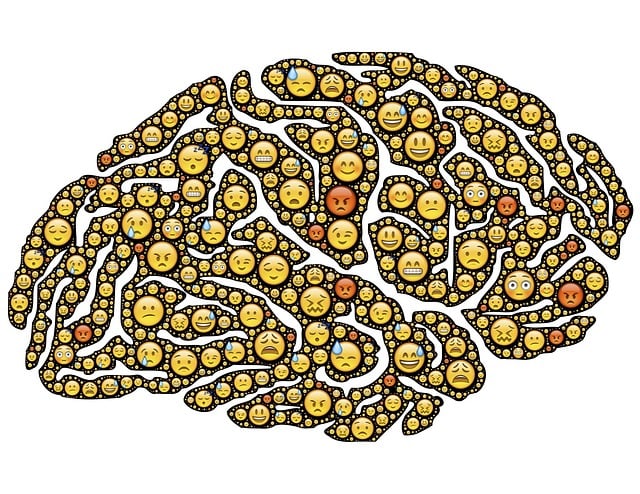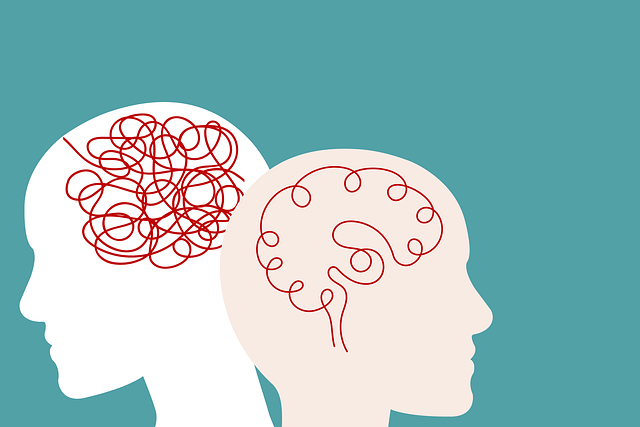Colorado Springs Anger Management Therapy emphasizes emotional intelligence (EQ) through self-awareness, empathy, active listening, and cultural sensitivity. It combines cognitive behavioral therapy and mindfulness to help individuals understand and manage anger, improve relationships, and enhance overall well-being. Techniques like journaling, perspective-taking, and risk assessment tailor support to personal needs, fostering inclusive care in a diverse community.
Emotional intelligence (EQ) is a powerful tool that transforms personal and professional relationships. In this article, we explore key components of building EQ. From understanding self-awareness to managing anger effectively through Colorado Springs Anger Management Therapy, each section delves into practical strategies. We uncover the importance of empathy and active listening in fostering deeper connections. By implementing these techniques, individuals can enhance their emotional intelligence, leading to improved mental well-being and stronger interpersonal bonds.
- Understanding Emotional Intelligence: The Foundation of Self-Awareness
- Identifying and Managing Anger: A Key Component of EQ
- Colorado Springs Anger Management Therapy: Strategies for a Calmer You
- Enhancing Empathy: Walking in Someone Else's Shoes
- Practicing Active Listening: The Art of Connection
Understanding Emotional Intelligence: The Foundation of Self-Awareness

Understanding Emotional Intelligence begins with self-awareness—a cornerstone of what Colorado Springs Anger Management Therapy refers to as EQ (Emotional Quotient). Self-awareness involves recognizing and understanding your emotions, strengths, weaknesses, values, and motivations. It’s about being honest with yourself about how you feel and why, which forms the basis for effective communication and relationship building. This foundational aspect of emotional intelligence enables individuals to recognize when they’re stressed or upset, and to manage these feelings in healthy ways.
In the context of risk assessment for mental health professionals, strong self-awareness is paramount. It allows practitioners to identify personal biases, maintain ethical boundaries, and provide empathetic support to their clients. Furthermore, promoting emotional well-being through techniques like journaling can enhance self-awareness, providing a space for introspection and reflection, much like the guidance offered in mental wellness journaling exercises.
Identifying and Managing Anger: A Key Component of EQ

Identifying and managing anger is a vital aspect of emotional intelligence (EQ) development. In Colorado Springs Anger Management Therapy, professionals guide individuals to understand the root causes of their anger, providing valuable mental wellness journaling exercise guidance. This process involves exploring personal triggers, learning healthy coping mechanisms, and cultivating self-awareness—essential skills for enhancing EQ. By managing anger constructively, individuals can improve their relationships, decision-making, and overall emotional well-being.
The journey towards better emotional intelligence requires a nuanced approach, especially when considering cultural sensitivity in mental healthcare practice. Different cultures have unique ways of expressing and interpreting anger. Therapists must be adept at recognizing these variations and tailoring their guidance accordingly. Incorporating diverse perspectives into anger management strategies ensures inclusivity and effectiveness, fostering a more profound understanding of EQ within a broader cultural context.
Colorado Springs Anger Management Therapy: Strategies for a Calmer You

In Colorado Springs, anger management therapy plays a pivotal role in promoting emotional well-being. This therapeutic approach is designed to help individuals understand and manage their anger effectively, thereby improving their relationships and overall mental health. Through various empathy building strategies, clients learn to recognize triggers, process emotions, and respond calmly under stress—a crucial skill for navigating daily challenges.
Colorado Springs Anger Management Therapy offers tailored solutions, focusing on both the individual and their unique context. Mental health professionals employ evidence-based techniques, combining cognitive behavioral therapy with mindfulness practices to foster positive change. A comprehensive risk assessment is conducted to ensure personalized care, addressing underlying issues that contribute to anger management difficulties. This holistic approach not only empowers individuals to lead calmer lives but also equips them with lifelong tools for emotional resilience.
Enhancing Empathy: Walking in Someone Else's Shoes

Empathy is a cornerstone of emotional intelligence and enhancing this skill can profoundly impact personal relationships and overall well-being. One effective method to foster empathy is by adopting a perspective outside one’s own—a practice often encouraged in Colorado Springs anger management therapy. By actively trying to understand someone else’s experiences, feelings, and motivations, individuals can develop a deeper connection with others. This process involves setting aside personal biases and judgments, allowing for a more nuanced appreciation of different viewpoints.
In the context of emotional healing processes, trauma support services, and cultural sensitivity in mental healthcare practice, empathy serves as a bridge to create safe and supportive environments. It enables individuals to offer meaningful comfort and assistance during challenging times, fostering a sense of belonging and understanding. This ability is especially crucial when navigating diverse communities where cultural differences may influence emotional expression and communication styles.
Practicing Active Listening: The Art of Connection

In the realm of emotional intelligence building, active listening stands out as a powerful tool for fostering meaningful connections. This art involves fully concentrating on what’s being said and responding thoughtfully, ensuring both clarity and understanding. When practicing active listening, individuals from Colorado Springs Anger Management Therapy can enhance their ability to empathize, recognize emotions, and provide supportive responses, thereby strengthening interpersonal relationships.
By incorporating self-care practices alongside this skill, one can create a safe space for open dialogue. Crisis intervention guidance, often integrated into healthcare provider cultural competency training, further enables professionals to navigate complex emotional situations effectively. Ultimately, active listening serves as a bridge, fostering deeper levels of trust and understanding in various settings, from therapeutic environments to personal relationships.
Emotional intelligence is a powerful tool for personal growth and healthier relationships. By understanding and managing emotions, such as anger through Colorado Springs Anger Management Therapy, practicing active listening, and enhancing empathy, individuals can navigate life’s challenges with greater ease. These skills foster self-awareness and improve connections with others, ultimately leading to a more fulfilling and balanced life.














